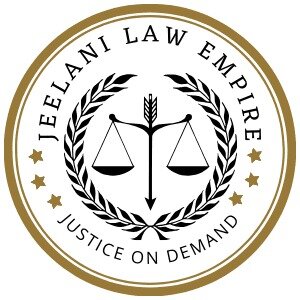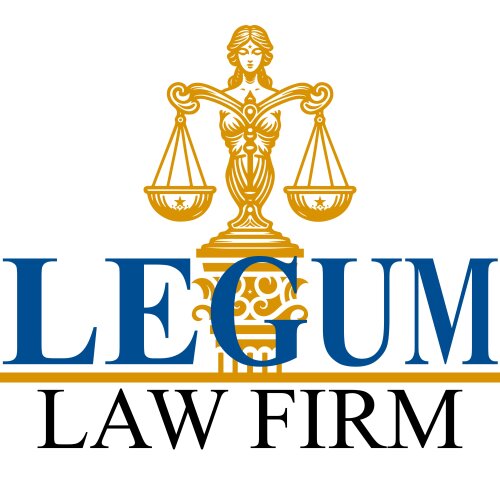Best Energy Regulatory Law Lawyers in Karachi
Share your needs with us, get contacted by law firms.
Free. Takes 2 min.
List of the best lawyers in Karachi, Pakistan
About Energy Regulatory Law in Karachi, Pakistan
Energy Regulatory Law in Karachi, Pakistan governs the generation, transmission, distribution, and use of electricity, gas, and other forms of energy. This field of law ensures that energy resources are developed and distributed in a fair, safe, and environmentally responsible manner. Key regulatory institutions like the National Electric Power Regulatory Authority (NEPRA) and the Oil and Gas Regulatory Authority (OGRA) oversee licensing, tariffs, compliance, and dispute resolution in the energy sector. Given Karachi’s status as Pakistan’s largest city and industrial hub, energy regulation is particularly significant here, impacting both businesses and everyday consumers.
Why You May Need a Lawyer
Legal assistance in Energy Regulatory Law can be essential in several situations. Individuals and organizations may need a lawyer if they are:
- Facing disputes with electricity or gas companies over billing, supply interruptions, or safety issues
- Seeking licenses or permits for setting up an energy-related business, such as installing a power plant or a renewable energy project
- Dealing with allegations of regulatory non-compliance or safety violations
- Involved in contractual disagreements with energy service providers, contractors, or government bodies
- Challenging decisions made by regulatory authorities or seeking to appeal fines and penalties
- Needing guidance on environmental and land use regulations linked to energy projects
- Protecting consumer rights regarding energy tariffs, outages, or unfair practices
- Participating in negotiations for energy purchase agreements or tariffs
- Dealing with energy theft allegations
Local Laws Overview
Several key pieces of legislation and regulatory frameworks govern energy in Karachi, including:
- NEPRA Act 1997 - Sets out the framework for electricity regulation, licensing, and tariff setting in Pakistan.
- OGRA Ordinance 2002 - Regulates natural gas and oil sectors, including pricing, safety, and service standards.
- Electricity Act 1910 and Electricity Rules 1937 - Provide foundational rules for the supply and use of electricity.
- Relevant rules from the Sindh Energy Department - Oversee energy projects including renewable resources in Karachi and the wider Sindh province.
- Environmental Protection Laws - Affect energy projects, particularly those related to emissions and environmental impact assessments.
In Karachi, energy operators are required to secure licenses, meet safety and technical standards, and comply with environmental and consumer protection laws. Regular inspections and audits may be carried out, and non-compliance can result in fines or license suspension.
Frequently Asked Questions
What is energy regulatory law?
Energy regulatory law governs how energy is produced, transmitted, distributed, and consumed. It ensures that the interests of consumers, service providers, and the environment are balanced, often through regulatory oversight.
Who oversees energy regulation in Karachi?
The primary regulatory bodies are NEPRA for electricity and OGRA for oil and gas. The Sindh Energy Department also plays a role, particularly for projects based in Karachi and Sindh.
What should I do if I have a dispute with my energy provider?
You should first contact your provider’s customer service. If the issue is not resolved, complaints can be lodged with NEPRA or OGRA. Legal advice can help in drafting complaints or escalating matters if needed.
Can private companies generate or sell electricity in Karachi?
Yes, but only after securing appropriate licenses from NEPRA and complying with technical, safety, and environmental standards.
How can I challenge an unfair tariff or billing practice?
Consumers can file complaints with NEPRA, OGRA, or other relevant authorities. Legal representation can strengthen your case and help navigate regulatory processes.
Are there special rules for renewable energy projects?
Yes. Incentives and streamlined licensing procedures are available for renewable energy, but compliance with safety, technical, and environmental standards is still essential.
What penalties can be imposed for non-compliance with energy regulations?
Penalties can include fines, suspension or cancellation of licenses, and, in severe cases, criminal charges for safety or environmental breaches.
Do residential consumers have legal protections?
Yes, consumers have rights regarding service reliability, fair billing, and recourse against unfair practices. Regulatory authorities enforce these protections.
What legal steps are needed to set up an energy project in Karachi?
You typically need to obtain licenses from NEPRA or OGRA, secure approvals from the Sindh Energy Department, complete environmental impact assessments, and comply with local land laws.
Can decisions by NEPRA or OGRA be appealed?
Yes, there are appellate forums and mechanisms within each regulatory authority. Judicial review in higher courts is also possible under certain circumstances.
Additional Resources
If you seek more guidance on Energy Regulatory Law in Karachi, consider reaching out to the following:
- National Electric Power Regulatory Authority (NEPRA)
- Oil and Gas Regulatory Authority (OGRA)
- Sindh Energy Department
- Pakistan Environmental Protection Agency
- The Federation of Pakistan Chambers of Commerce & Industry (FPCCI)
- Professional associations like the Pakistan Bar Council for finding legal practitioners
Next Steps
If you need legal assistance with Energy Regulatory Law in Karachi, start by identifying your specific concern and collecting all relevant documents such as contracts, bills, and correspondence. Reach out to a qualified lawyer with experience in energy regulation or consult a legal aid organization for initial guidance. Be prepared to explain your issue clearly and ask about the possible options and outcomes. Timely action and professional legal support can help protect your rights and interests in this complex field.
Lawzana helps you find the best lawyers and law firms in Karachi through a curated and pre-screened list of qualified legal professionals. Our platform offers rankings and detailed profiles of attorneys and law firms, allowing you to compare based on practice areas, including Energy Regulatory Law, experience, and client feedback.
Each profile includes a description of the firm's areas of practice, client reviews, team members and partners, year of establishment, spoken languages, office locations, contact information, social media presence, and any published articles or resources. Most firms on our platform speak English and are experienced in both local and international legal matters.
Get a quote from top-rated law firms in Karachi, Pakistan — quickly, securely, and without unnecessary hassle.
Disclaimer:
The information provided on this page is for general informational purposes only and does not constitute legal advice. While we strive to ensure the accuracy and relevance of the content, legal information may change over time, and interpretations of the law can vary. You should always consult with a qualified legal professional for advice specific to your situation.
We disclaim all liability for actions taken or not taken based on the content of this page. If you believe any information is incorrect or outdated, please contact us, and we will review and update it where appropriate.

















